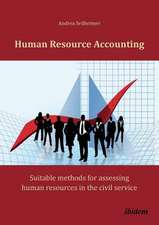Morbid Symptoms: Relapse in the Arab Uprising: Stanford Studies in Middle Eastern and I
Autor Gilbert Achcaren Limba Engleză Paperback – 24 mai 2016
In this eagerly awaited book, foremost Arab world and international affairs specialist Gilbert Achcar analyzes the factors of the regional relapse. Focusing on Syria and Egypt, Achcar assesses the present stage of the uprising and the main obstacles, both regional and international, that prevent any resolution. In Syria, the regime's brutality has fostered the rise of jihadist forces, among which the so-called Islamic State emerged as the most ruthless and powerful. In Egypt, the Muslim Brotherhood's year in power was ultimately terminated by the contradictory conjunction of a second revolutionary wave and a bloody reactionary coup. Events in Syria and Egypt offer salient examples of a pattern of events happening across the Middle East.
Morbid Symptoms offers a timely analysis of the ongoing Arab uprising that will engage experts and general readers alike. Drawing on a unique combination of scholarly and political knowledge of the Arab region, Achcar argues that, short of radical social change, the region will not achieve stability any time soon.
| Toate formatele și edițiile | Preț | Express |
|---|---|---|
| Paperback (2) | 88.21 lei 3-5 săpt. | +10.89 lei 7-11 zile |
| SAQI BOOKS – 16 mai 2016 | 88.21 lei 3-5 săpt. | +10.89 lei 7-11 zile |
| Stanford University Press – 24 mai 2016 | 165.27 lei 3-5 săpt. | |
| Hardback (1) | 642.11 lei 6-8 săpt. | |
| Stanford University Press – 24 mai 2016 | 642.11 lei 6-8 săpt. |
Din seria Stanford Studies in Middle Eastern and I
-
 Preț: 177.01 lei
Preț: 177.01 lei -
 Preț: 203.47 lei
Preț: 203.47 lei -
 Preț: 414.99 lei
Preț: 414.99 lei -
 Preț: 155.43 lei
Preț: 155.43 lei -
 Preț: 169.42 lei
Preț: 169.42 lei -
 Preț: 175.59 lei
Preț: 175.59 lei -
 Preț: 148.27 lei
Preț: 148.27 lei -
 Preț: 175.59 lei
Preț: 175.59 lei -
 Preț: 176.60 lei
Preț: 176.60 lei -
 Preț: 192.52 lei
Preț: 192.52 lei -
 Preț: 248.50 lei
Preț: 248.50 lei -
 Preț: 168.36 lei
Preț: 168.36 lei -
 Preț: 216.96 lei
Preț: 216.96 lei -
 Preț: 206.50 lei
Preț: 206.50 lei -
 Preț: 171.47 lei
Preț: 171.47 lei -
 Preț: 195.80 lei
Preț: 195.80 lei -
 Preț: 193.38 lei
Preț: 193.38 lei -
 Preț: 165.27 lei
Preț: 165.27 lei -
 Preț: 172.91 lei
Preț: 172.91 lei -
 Preț: 200.41 lei
Preț: 200.41 lei -
 Preț: 170.00 lei
Preț: 170.00 lei -
 Preț: 175.18 lei
Preț: 175.18 lei -
 Preț: 204.51 lei
Preț: 204.51 lei -
 Preț: 233.24 lei
Preț: 233.24 lei -
 Preț: 149.32 lei
Preț: 149.32 lei -
 Preț: 171.63 lei
Preț: 171.63 lei -
 Preț: 242.22 lei
Preț: 242.22 lei -
 Preț: 226.67 lei
Preț: 226.67 lei
Preț: 165.27 lei
Nou
31.63€ • 34.34$ • 26.57£
Carte disponibilă
Livrare economică 01-15 aprilie
Specificații
ISBN-10: 1503600319
Pagini: 240
Dimensiuni: 140 x 216 x 24 mm
Greutate: 0.23 kg
Editura: Stanford University Press
Colecția Stanford University Press
Seria Stanford Studies in Middle Eastern and I
Recenzii
Notă biografică
Cuprins
In 2011, "Arab Spring" referred to a brief and peaceful period of "democratic transition" with much euphoria. However, the 2011 uprising was not a crisis resulting from years of socioeconomic development as in most "democratic transitions," but one resulting from protracted socioeconomic blockage. This was also the case for the Eastern European upheaval of 1989, but one key historical peculiarity of the "communist" states was the absence of propertied ruling classes. Conversely, the Arab region is dominated by states privately "owned" by ruling clans. 2011 was only the beginning of a difficult long-term revolutionary process, complicated by the development over decades of Islamic fundamentalist forces challenging the existing regimes. 2013 saw a reversal of the revolutionary tide into a clash between the two counter-revolutionary poles: the old regimes and their Islamic nemeses.
By denying the Syrian mainstream opposition of 2011-12 the defensive weapons it requested, especially antiaircraft weapons, and by preventing its regional allies from providing such weapons, the Obama administration bears a major responsibility in the persistence of the Syrian regime, heavily backed by Iran and Russia, and in the destruction of Syria and its people. This situation allowed al-Qaeda to move from Iraq into Syria, leading to the creation of ISIS soon after. The Assad regime encouraged the growth of jihadism within the opposition as its preferred enemy (since it is repulsive to the West). The Gulf monarchies and Turkey backed groups belonging to the same current as their preferred friends (rather than Syrian democrats). Thus, the Syrian civil tended to turn into a clash of barbarisms. In shoring up the Assad regime, Russia's intervention complicates the prospect of a negotiated end to the war, that is badly needed.
Egypt's Muslim Brotherhood ended its alliance with the military when it bid for presidency in 2012, reneging on its promise. Mohamed Morsi's rule antagonized a vast majority of Egyptians in trying to secure Brotherhood's control over the state. "Tamarrod," a small group of young people, launched a petition asking Morsi to step down. Its action rapidly gathered momentum attracting support from both the left and liberal opposition to the old regime, now opposed to Morsi, and old regime's forces backed by the military. As in 2011, the military hijacked the mass mobilization that culminated on 30 June 2013. After a year of repression and transition, military chief, Abdul-Fattah al-Sisi, was elected president, signaling an increase in military control of Egypt's polity and economy. However, by following the same neoliberal policies as previous governments, Sisi is doomed to fail in addressing the socioeconomic roots of Egypt's crisis.
In all the countries of the 2011 uprising, hopes receded due to the lack of leaderships embodying the aspirations of the "Arab Spring." In Libya, where the state collapsed, Islamic fundamentalist forces clashed with left and liberal forces allied with remnants of the state. In Yemen, old regime forces allied with Iran-backed fundamentalists clashed with the Saudi-backed government born of the compromise that ended the 2011 uprising. In both countries, the Islamic State and al-Qaeda are gaining ground. In Tunisia, Ennahda took heed of the tragedy that befell Egypt's Muslim Brotherhood and left government before new elections. Old regime men came back to power, forming a coalition with Ennahda-to the great satisfaction of Western governments who wish to repeat this scenario across the region. However, the worsening socioeconomic crisis creates a highly unstable situation. Radical social and political change is indispensable, but requires an able Left.
Descriere
In this sequel to his landmark exploration of the Arab uprisings, The People Want, Gilbert Achcar assesses the present stage of the revolutionary process and its possible outcomes.
















